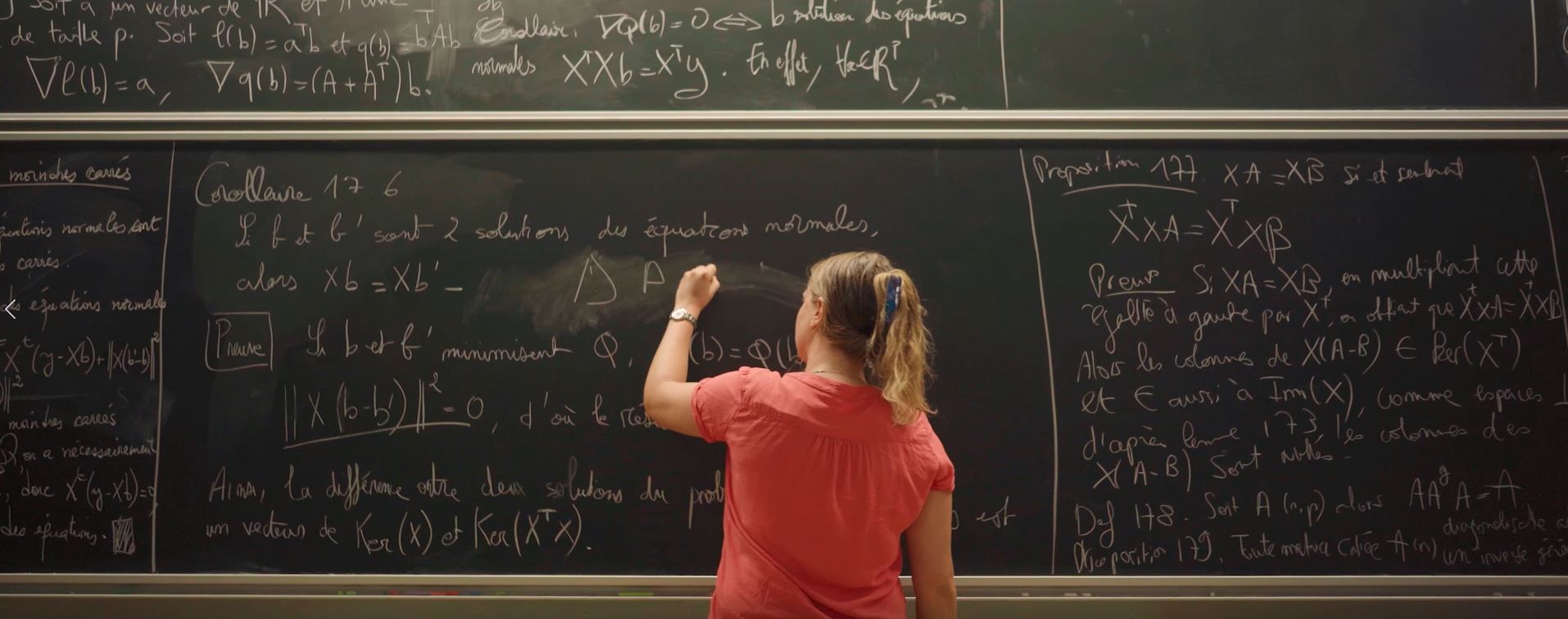
Discover ENSAE's faculty
The teaching at ENSAE Paris is provided by :
- ENSAE Paris teacher-researchers, whose research activities are carried out within CREST
- Research professors from partner universities and schools
- High-level professionals from the business world or public organizations
The teacher-researchers teach most of the basic lectures, especially the most academic courses. They conduct their research at CREST (Centre de recherche en économie et statistique), the joint ENSAE-X-CNRS-ENS research unit. The program also gives a large place to high-level professionals (banks, large companies, ministries, etc.), who teach courses directly related to the problems of companies. CNRS researchers and academics also teach at ENSAE Paris.
Discover research at ENSAE Paris
ENSAE Paris' academic recognition is based on the influence of its Center for Research in Economics and Statistics, the CREST (a joint research unit with the CNRS and the École Polytechnique). The research areas are: economics and econometrics; statistics and data science; finance and insurance; and quantitative sociology.
ENSAE is involved with CREST in publicly funded projects of excellence such as Labex Ecodec (with HEC), EUR Data EFM (with IP Paris and HEC), and IP Paris interdisciplinary centers (Hi! Paris in AI, E4C for the ecological transition), IP Paris disciplinary departments (mainly in economics and mathematics), the Jacques Hadamard Mathematical Foundation, multiple research chairs, and applied research projects such as the Institute for Public Policy.
The school's core courses are backed by research: they aim to provide ENSAE students with knowledge at the frontiers of research, enabling graduates to bring innovation to companies or public institutions. Starting in the second year, students who wish to do so can be introduced to research by choosing theoretical or applied projects supervised by CREST researchers, and thus benefit from an initial tutorial to prepare them for the choice of a subject and a research master's program in the third year. The most advanced students will be able to benefit from the Training through Research option, in order to facilitate the progress of their research project. They will have to submit a research project at the end of the second year.
Students can take a research master's degree in the third year and pursue a doctorate, notably in the CREST laboratories.
ENSAE students who choose to pursue a doctorate and academic research often succeed brilliantly.
ENSAE training benefits from a faculty and a high-level research environment, thanks to the presence on its premises of the Centre de Recherche en Économie et Statistique (CREST), a joint ENSAE-X-CNRS research unit.
Discover the courses offered by ENSAE Paris
The engineering degree
ENSAE Paris trains engineers specializing in mathematical modeling applied to economic and financial decision-making (for businesses, banks, insurance companies, and the government), to the analysis of social phenomena, and to the sciences of matter and life.
Training at ENSAE is based on the acquisition of applied mathematical tools for modeling economic and financial phenomena and for mastering data processing and analysis methods ("data science"), which are fundamental to the professions for which ENSAE prepares students.
In the third year, six specialization tracks are offered, but it is possible within these tracks to choose from the 140 courses in the 3A course catalog (subject to schedule compatibility).
- Actuarial Science
- Data Science & Business Decision
- Data Science & Social Sciences
- Data Science, Statistics & Learning
- Economic Policies & Dynamics
- Finance, Risks & Data
ENSAE has set up numerous double degrees with other prestigious schools (HEC, ESSEC, ESCP, ENS, Sciences Po, etc.).
The engineering curriculum is also compatible in the 3rd year with research Masters and PhD tracks that it operates or co-operates in the framework of the IP Paris.
Engineering students can continue their training at the doctoral level.
Advanced masters
The advanced skills acquired in the final year of the ENSAE engineering program are also used in "post-master's" programs, the specialized master's programs of the Conférence des grandes écoles, which are intended for students who already hold an M2 or a grande école diploma.









